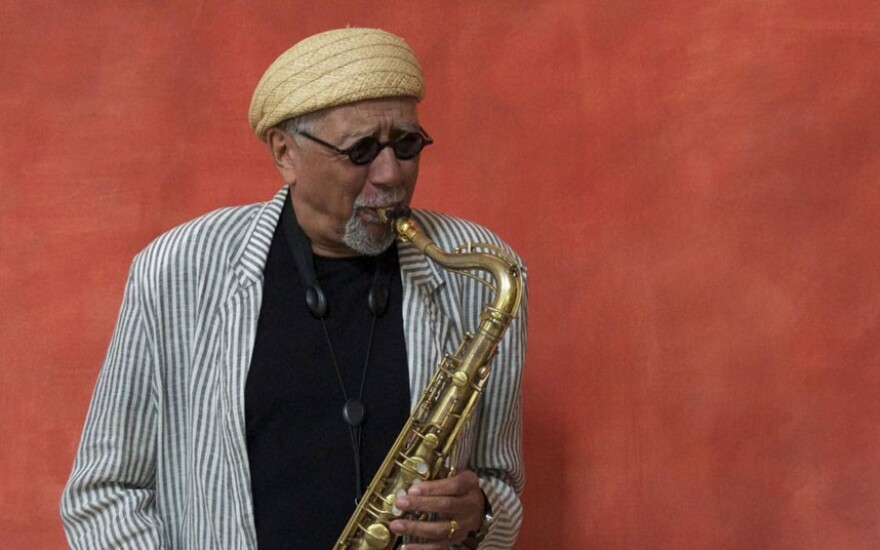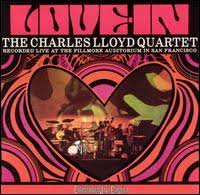Today is Charles Lloyd’s 75thbirthday. He’s celebrating the milestone with a concert at the Metropolitan Museum of Art tonight, and he’ll be at Sanders Theater in Cambridge on Thursday.

Lloyd had essentially retired from touring and recording by the time I became aware of him in the late 60’s, and as I recall the success that enabled him to kick back in Big Sur and explore Transcendental Meditation made him a suspect figure in jazz. There’s nothing like fame and riches, however moderate by show biz standards, to invite cynicism from the jazz community. Lloyd’s renown had grown to rock star proportions with his frequent appearances at the Fillmore West, and his performance of “Forest Flower” at the 1966 Monterey Jazz Festival resulted in a best-selling LP that became ubiquitous in record collections otherwise devoted to rock.


More skeptical observers dismissed his tenor style as “Coltrane-lite,” but as Will Friedwald writes in today’s Wall Street Journal, “that was never what Mr. Lloyd’s music was about. While Trane’s most famous acco-“lites”—like Archie Shepp and Pharoah Sanders—followed the late tenor messiah into the realm of outer space, Mr. Lloyd made it his mission to resume Trane’s odyssey here on terra firma.”
Lloyd was born in Memphis, where his parents often provided accommodations to traveling black musicians. “We had a large house and hotels were few for these great artists,” he wrote in a liner note essay for a 1994 release, All My Relations. “I was closest to [Lionel Hampton’s] band…he had so many great musicians…Clifford Brown, Quincy Jones, Little Jimmy Scott and many others.” Hearing Billie Holiday and Charlie Parker were profound experiences for Lloyd in boyhood. He fell “under the spell of her melancholy tones,” and listening to Bird on the radio, he would “soar through the air with him. I would dream like him…As a lonely boy, this was the sympatico I had been looking for, he set me free.”
The teenaged tenor saxophonist gained experience around Memphis and West Helena, Arkansas playing the blues with Roscoe Gordon, Howlin’ Wolf, Johnny Ace, and B.B. King. He moved to L.A. in 1956 to attend UCLA, and came to early prominence with drummer Chico Hamilton, then worked with Cannonball Adderley. He formed his own quartet in April1966, and as its leader projected a form of downhome mysticism that made him an icon of the Age of Aquarius. George Avakian, who produced Lloyd’s LP’s for Atlantic, wrote that the albums were “chronicles [of] the love story of the Charles Lloyd quartet with the young people of America.” On short notice, the love became international, for within eighteen months Lloyd had completed six European tours, the last including concerts in 18 countries.

Lloyd’s celebrated quartet with Keith Jarrett, Ron McClure, and Jack DeJohnette appeared on Ralph J. Gleason’s San Francisco-based television series Jazz Casual on June 18, 1968.
The Charles Lloyd New Quartet, featuring Jason Moran, Reuben Rogers, and Eric Harland, is seen here in July 2011 playing “Caroline, No,” Brian Wilson’s heartbreaker from the Beach Boys classic, Pet Sounds.